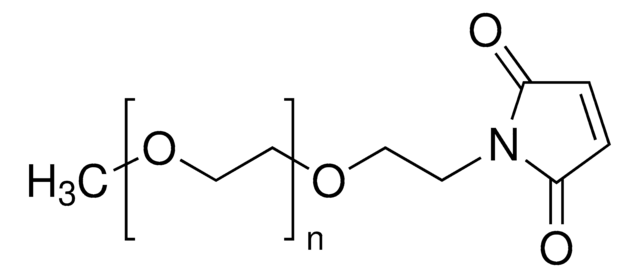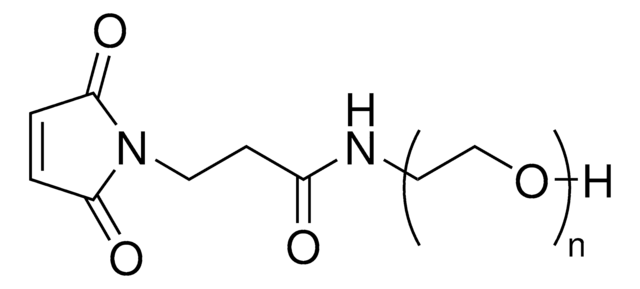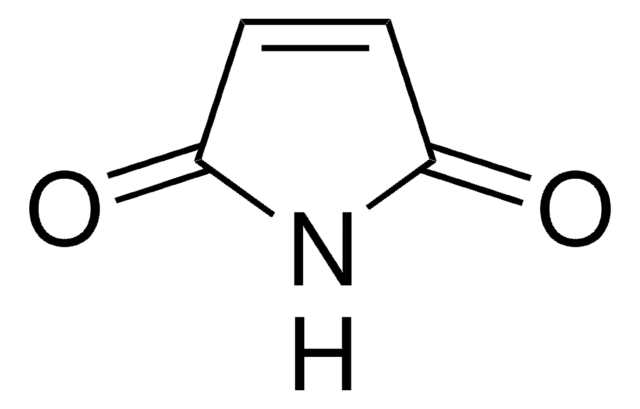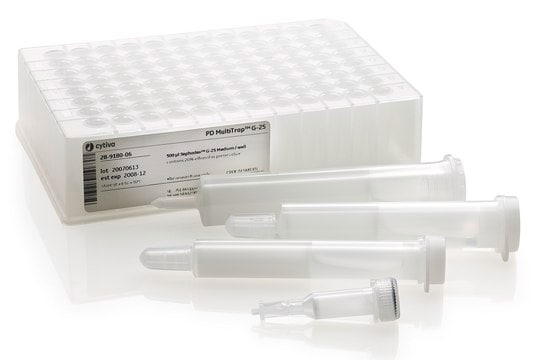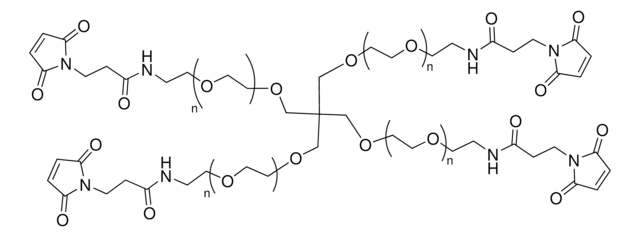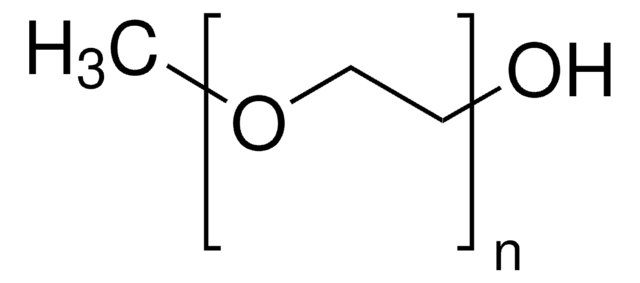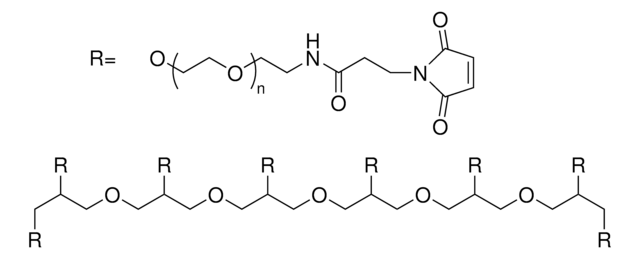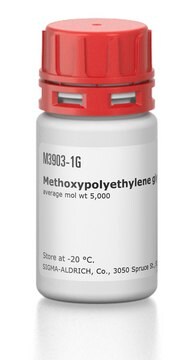63187
Methoxypolyethylene glycol maleimide
≥90% (NMR), 5,000
Sinonimo/i:
Polyethylene glycol, MeO-PEG-Mal, PEG-maleimide, mono-Methyl polyethylene glycol 2-maleimidoethyl ether
Autenticatiper visualizzare i prezzi riservati alla tua organizzazione & contrattuali
About This Item
Prodotti consigliati
Livello qualitativo
Saggio
≥90% (NMR)
PM
PEG average Mn 5,000
Estremità Ω
maleimide
Estremità α
methoxy
Temperatura di conservazione
−20°C
Cerchi prodotti simili? Visita Guida al confronto tra prodotti
Categorie correlate
Applicazioni
Methoxypolyethylene glycol maleimide (MeO-PEG-Mal) is used as a protein pegylation reagent. PEGylation is the process of covalently attaching polyethylene glycol (PEG) polymer chains to other molecule such as proteins.
Prodotti correlati
N° Catalogo
Descrizione
Determinazione del prezzo
Codice della classe di stoccaggio
11 - Combustible Solids
Classe di pericolosità dell'acqua (WGK)
WGK 3
Punto d’infiammabilità (°F)
Not applicable
Punto d’infiammabilità (°C)
Not applicable
Dispositivi di protezione individuale
Eyeshields, Gloves, type N95 (US)
Scegli una delle versioni più recenti:
Possiedi già questo prodotto?
I documenti relativi ai prodotti acquistati recentemente sono disponibili nell’Archivio dei documenti.
I clienti hanno visto anche
Jiankun Qie et al.
Drug metabolism letters, 1(3), 232-240 (2007-08-01)
Site-specific mono-PEGylations were performed in different conformational regions of Thymosin alpha 1 (T alpha 1) by introducing one cysteine residue into the chosen site and coupling with thiol-specific mPEG-MAL reagent. Results demonstrated that PEGylated sites and regions influenced the conformations
R J Goodson et al.
Bio/technology (Nature Publishing Company), 8(4), 343-346 (1990-04-01)
We have modified recombinant interleukin-2 (rIL-2) to facilitate site-directed covalent attachment of monomethoxy polyethylene glycol (PEG). The site chosen for modification and subsequent covalent attachment with PEG (PEGylation) was the single glycosylation position found in the native interleukin-2 (IL-2). The
K Ananda et al.
Analytical biochemistry, 374(2), 231-242 (2007-12-27)
The design of the extension arm-facilitated PEGylation (EAFP) of proteins takes advantage of the high selective and quantitative aspects of the thiol-maleimide reaction. However, the efficiency of EAFP with hemoglobin varied with the batches of maleimide-PEG. The low level of
Lidia Wrobel et al.
Scientific reports, 6, 27484-27484 (2016-06-07)
Disulfide bond formation is crucial for the biogenesis and structure of many proteins that are localized in the intermembrane space of mitochondria. The importance of disulfide bond formation within mitochondrial proteins was extended beyond soluble intermembrane space proteins. Tim22, a
Leah C Ray et al.
Nature chemical biology, 14(6), 538-541 (2018-05-18)
Polyprenol phosphate phosphoglycosyl transferases (PGTs) catalyze the first membrane-committed step in assembly of essential glycoconjugates. Currently there is no structure-function information to describe how monotopic PGTs coordinate the reaction between membrane-embedded and soluble substrates. We describe the structure and mode
Il team dei nostri ricercatori vanta grande esperienza in tutte le aree della ricerca quali Life Science, scienza dei materiali, sintesi chimica, cromatografia, discipline analitiche, ecc..
Contatta l'Assistenza Tecnica.